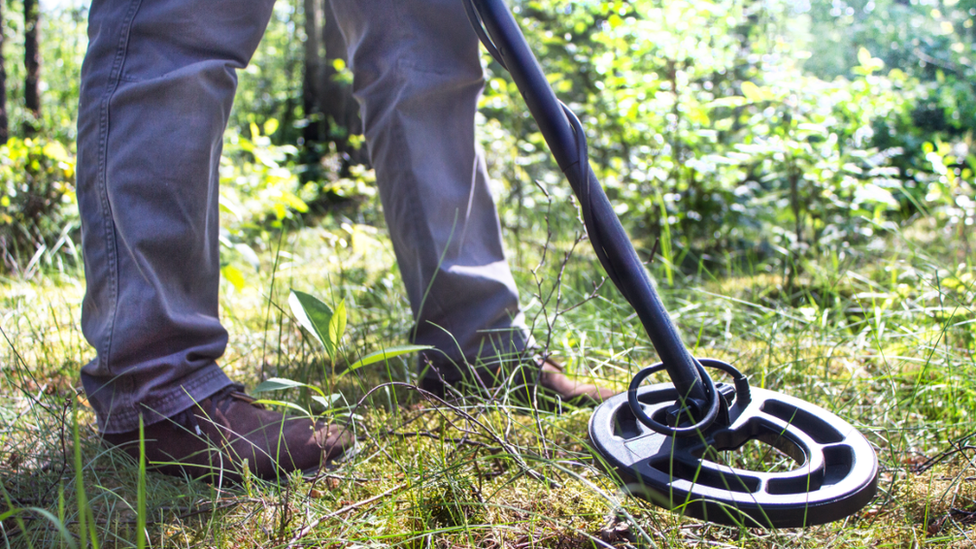Herefordshire £3m Saxon coin hoard theft accused 'in it for the money'
- Published

Not reporting items more than 300 years old to the coroner breaches the Treasure Act
A metal detectorist accused of stealing a £3m Anglo-Saxon coin hoard and priceless jewellery was "in it for the money", a court has heard.
George Powell had been "excited" about the "extremely rare" collection of treasure dug up in Herefordshire in June 2015, Worcester Crown Court heard.
But co-accused Paul Wells said Mr Powell did not want to declare it treasure, instead wanting money.
The pair deny conspiring to conceal the find.
Simon Wicks, 57, of Hawks Road, Hailsham, and Layton Davies, 51, of Cardiff Road, Pontypridd, also deny the same charge.
Metal detectorists Mr Powell, 38, of Coulson Close, Pill, Newport, and Mr Davies are also accused of theft.
Jurors have heard the four are accused of ignoring the law stating such finds must be properly declared, in a bid to sell the items in small batches.
The treasure, which includes gold and silver coins, some going back to the reign of Alfred the Great, a gold bracelet and ring, silver ingots and a crystal sphere, was found in a village north of Leominster.
West Mercia Police officer Det Con Gareth Thomas told the court he spoke to coin dealer Mr Wells, 60, at his home in Newport Road, Cardiff, three months later.
He was not under arrest at the time, but was detained after unexpectedly producing a key fob-type magnifying glass and then showing officers five Saxon coins concealed in the lining of the glass's case.
He said he had been given them after meeting Mr Powell and Mr Davies in the summer and had been trying to give them back.
He told police that Mr Powell rang him to meet up, along with Mr Davies, to show him more of the haul.
He claimed Mr Powell told him the 10-12 coins shown at the meeting were all the pair had found, but he then produced three items wrapped in kitchen roll.
One was a gold ring, "a bangle with a dragon or a lion eating its tail" and a "rock crystal sphere, an inch-and-a-half in diameter, with a gold attachment".
"I realised why George had been so excited," said Mr Wells.
He told Mr Powell they must be put into a museum, and felt Mr Davies agreed, "but George said it would be worth at least £30-£40,000" and was "in it for the money".
The trial continues.